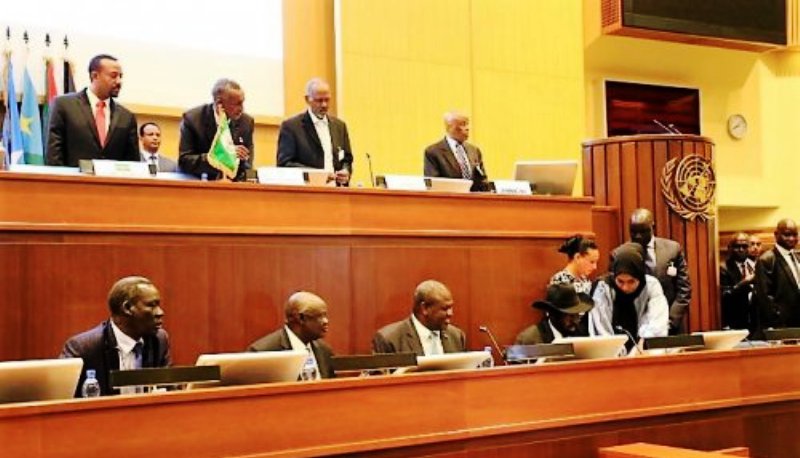SSOA holdout groups voice rejection of South Sudan’s revitalized peace

September 14, 2018 (JUBA) – Several groups members of the South Sudan Opposition Alliance voiced their rejection of the revitalized peace agreement saying it only serves Sudan and Uganda interests and pledged to continue their struggle for a sustainable peace.
The media release announcing the rejection was signed by the National Salvation Front (NAS) of Gen. Thomas C. Swaka, Pagan A. Oketch, People’s Democratic Movement (PDM) chaired by Hakim Dario, National Democratic Movement (NDM) led by Emanuel Aban and the United Democratic Republic Alliance (UDRA) of Gatwech K. Thich.
The NAS and PDM have already rejected the governance agreement pointing it does not respond to their demand for a genuine federal system. Also, Pagan Amum rejected the governance deal as the Chair of the SPLM-FDs but this time he appended his signature without the name of his.
“We, the undersigned leaders and our respective organizations would like to inform our people and the international community that we are not party to the Revitalized Peace Agreement signed on 12th September 2018,” reads the statement.
The holdout leaders further vowed to continue the search for a just, inclusive and sustainable peace.
In addition, they called on the United Nations Security Council, the AU, TROIKA, EU and IGAD Plus “to take note of the shortcomings of the signed peace agreement, which now renders it unsustainable and subservient to outside regional interests than to those of the people of South Sudan”.
Beside their demand for a strong federal regime, the non-signatories said the agreement failed to address the root causes of the South Sudanese crisis, to bring justice and accountability for war crimes and atrocities.
All these deficiencies make the “Revitalized Peace Agreement unsustainable, and is at a great risk of returning the country to another war as it did in July 2016,” they stressed.
The IGAD leaders responded positively to the demands of the SPLM-IO and SSOA in terms of the disputed number of states and tribal boundaries, decision-making process in the meeting of the presidency, cabinet, and the legislative assembly as well as state and local governments. Also, they reviewed the procedures of the permanent constitutional-making process.
However, during the talks, NAS and PDM accused the mediation of brushing aside their demands for a federal system granting sufficient autonomy and adequate resources to the states vis-à-vis the federal government.
Observers say the mediation approach adopted by the IGAD this time was positive because the mediation team when it fails to reach a compromise between the parties used to refer the disputed matter s to the IGAD leadership which play the mediation at another sphere directly at the level of foreign ministers or the heads of state and government.
However, they say what is problematic, it sometimes allows the government to impose its point of view at the higher levels of negotiations when the matters are discussed by the ministers and leaders without giving the opposition the opportunity to advocate its positions.
During the Khartoum round of talks, the opposition reached the Sudanese president who sought to reflect their positions at the meetings of the heads of state and government. Also, Omer al-Bashir used to coordinate with Ugandan President Yoweri Museveni to press Kiir to make some concessions.
The Troika countries praised the role played by the IGAD in the resolution of the conflict but remained sceptical over Juba full commitment to implement the deal, based on the repeated violations of the ceasefire agreement and attacks on civilians and aid workers.
(ST)
